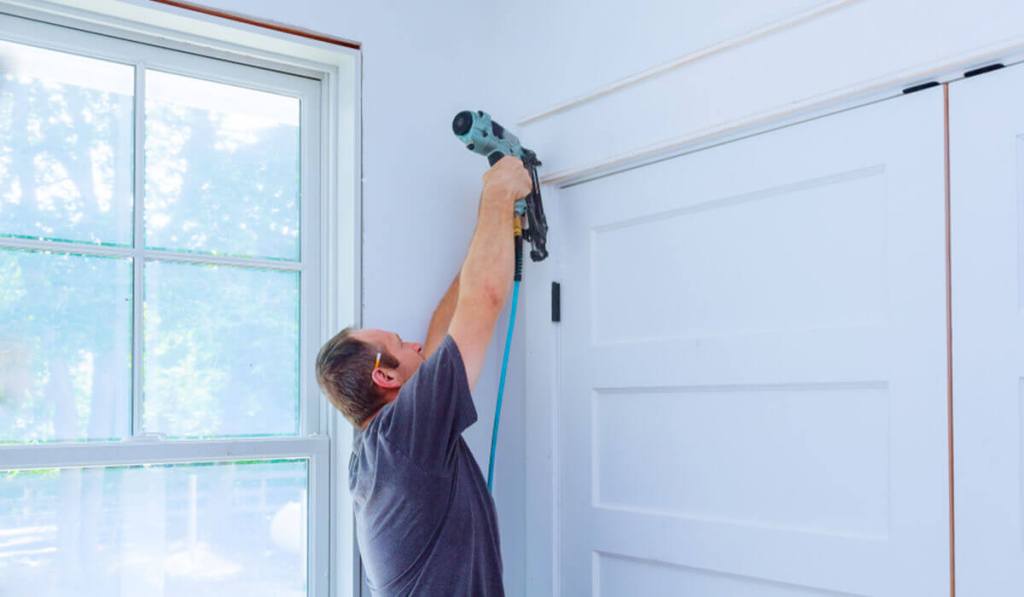Let’s face it: whether you’re a handyman or a general contractor, you know what defines your business.
But it’s helpful to know how other people see your business, especially if those people are there to help you get any licensing and insurance you may need.
That’s precisely what I want to look at in this article, with a focus on how insurance providers classify both handymen and general contractors.
It’s my hope that understanding this difference can help you get the insurance coverage that’s right for you, so you can:
- Protect your business
- Get better projects
- Keep your personal finances safe
Let’s do this!
Handyman vs. General Contractor: How Insurance Providers Tell the Difference
-
Who is considered a “general contractor”?
In the simplest terms, a general contractor is in charge of hiring multiple people/companies to complete a project. For example — and you probably already know this — a general contractor building a house may be in charge of roofers, floor installers, painters, and other trades, all of whom are working for the general contractor as subcontractors.
Here’s why this distinction is important to business insurance providers: This setup makes it almost impossible for them to know these two things:
- Who the subcontractors are
- What work they’re doing
This matters to insurance companies because they’re not insuring the painters and floor installers working for you. They’re insuring you. That means that if a problem occurs or a claim is filed, your insurance provider can’t be 100% certain of who to hold liable.
Unfortunately, this means that some insurance providers tend to avoid working with general contractors. Those who do work with general contractors likely have a lot of experience working through the nuances of the contractors’ business.
-
Who is considered a “handyman”?
From an insurance perspective, a handyman is generally someone who is doing the work himself and not hiring subcontractors. So if you’re working on a project by yourself, chances are insurance providers would consider you a handyman. Insurers also consider a handyman to be someone who does a little bit of everything, such as painting, light electrical, light plumbing, and more.
The bottom line is that the more accurate you are about your business, the more likely you are to get the right coverage. Whether you’re a handyman or a general contractor, take a look at what to keep in mind when you’re checking out handyman insurance coverage.
What to Keep In Mind When Getting Your Business Insurance
-
Being specific can help.
It may be tempting to call yourself a contractor when you’re buying business insurance, but it helps to be more specific about your trade. For example, it may be more accurate to call yourself an electrician, plumber, or a home improvement contractor. These details matter and could help you find better coverage for your business. It could also change the cost of your coverage.
-
Have your details ready ahead of time.
Whether you’re shopping for insurance online or contacting a local agent, the process can be a lot easier if you have everything you need ahead of time. While every insurance provider is different, there’s a good chance you’ll be asked for the following:
- Your estimated revenue
- Your payroll (subcontractors included)
- The state where you’re located
- The types of services you provide
- And more
Your project specialties can play an important role in helping an insurance provider understand if they should consider you to be a handyman, a general contractor, or a different trade altogether.
-
Ask for help if you need it.
Buying insurance can be a confusing process (what do all of those terms even mean?), which is why you should ask for help if you need it. At Simply Business, we’ve made it easy to buy insurance coverage online, but we also give people the opportunity to call our licensed insurance agents if they have any questions. It’s just one way we make sure you can be confident that you’re getting the exact coverage you need.
So were you surprised by how insurers define what makes a handyman versus a general contractor? Let me know in the comments below!
Get Insured in Under 10 Minutes
Get an affordable & customized policy in just minutes. So you can get back to what matters: Your business.
